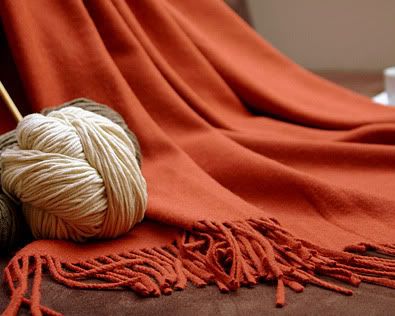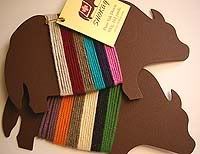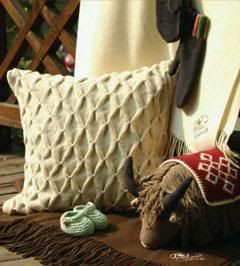"The most beautiful makeup for a woman is passion, but cosmetics are easier to buy."
—Yves Saint Laurent
Announcements
If you're new to this blog, then read our guides to the basics: Skin (Part I), Skin (Part II), The Supernatural, Color Theory I, Color Theory II, Eyes, and Brushes.
Also, check out the blogsale.
Contents
Favored
Art Tattler
the glamourai
The Non-Blonde
Perfume Shrine
Lisa Eldridge
Garance Doré
Smitten Kitchen
Into The Gloss
Grain de Musc
Lacquerized
Res Pulchrae
Drivel About Frivol The Selfish Seamstress
Killer Colours
Bois de Jasmin Glossed In Translation
Jak and Jil
Toto Kaelo
Worship at the House of Blues
I Smell Therefore I Am
Food Wishes
The Natural Haven
Messy Wands
1000 Fragrances
Moving Image Source
Wondegondigo
The Emperor's Old Clothes
M. Guerlain
Colin's Beauty Pages
Barney's jewelry department
Parfümrien
loodie loodie loodie
The Straight Dope
Sea of Shoes
London Makeup Girl
Sakecat's Scent Project
Asian Models
Ratzilla Cosme
Smart Skincare
Illustrated Obscurity
A.V. Club
Tom & Lorenzo: Mad Style
Eiderdown Press
Beauty and the Bullshit
La Garçonne Flame Warriors Everyday Beauty
Fashion Gone Rogue
Now Smell This
Dempeaux
Fashionista
The Cut
A Fevered Dictation
Nathan Branch
101 Cookbooks
Growing up close to the textiles industry, I learned that fashion was short-lived, but that good fabric would last a lifetime. My parents bought yards of cloth for their coats and suits overseas (Italian wool woven from Australian merino), before having them tailored in Shanghai: the best of both worlds. I know grades of wool, silk, mohair, alpaca, linen, cashmere and cotton by feel, and I am very particular about what I will allow near my skin.
100% polyester? Not a chance.
90% cotton/10% cashmere? I will be needing second, third, fourth back-ups, in different colours, please.*

On my most recent trip to Shanghai, while scouting various boutiques in the French Concession for a suitable birthday gift for a discerning friend, I came across Shokay ("yak fiber" in Tibetan), a brand founded in 2006 by Marie So and Carol Chyau, former classmates at the Harvard Kennedy School’s MPA/ID program.
According to their website, Shokay is "the world’s first lifestyle brand focused on using yak fibers to provide maximum warmth, comfort, & style. Shokay prides itself not only in its classic and modern designs, but also in its social impact." Their scarves, shawls, throws and other products are made from hand-combed yak down sourced from Tibetan herders in Qinghai Province, and knitted in Chongming Island, off the eastern coast of China, before being sold in up-scale boutique stores in Shanghai, Beijing, abroad, and online.
 The business model is not new: sell to a niche market something that gives people in less developed areas (in this case, one of the poorest regions in China) a sustainable income. The Oxfam Store runs on the same basic principle. What is unique about Shokay is how it is almost single-handed creating a market for a product that most people outside of the region do not know anything about.
The business model is not new: sell to a niche market something that gives people in less developed areas (in this case, one of the poorest regions in China) a sustainable income. The Oxfam Store runs on the same basic principle. What is unique about Shokay is how it is almost single-handed creating a market for a product that most people outside of the region do not know anything about.
I am not entirely unfamiliar with yaks. On a trip last summer to Diqing Tibetan Autonomous Prefecture, also know as Shangri-La, in Yunnan Province, I had the opportunity to get pretty close to a number of those large, shaggy animals. But what I could not have anticipated from seeing them is just how truly luxurious their down was.
 I own the plaid shawl ($105 USD) from Shokay in the colour pale green, made from a blend of 75% yak and 25% bamboo. (Bamboo!**) The fabric is superbly soft, breathable like linen, with the warmth and lightness of weight of cashmere. It is ideal during the warmer months, when the weather can turn chilly all of a sudden, or if you need a temporary shield for your bare skin against the over-zealous air conditioning.
I own the plaid shawl ($105 USD) from Shokay in the colour pale green, made from a blend of 75% yak and 25% bamboo. (Bamboo!**) The fabric is superbly soft, breathable like linen, with the warmth and lightness of weight of cashmere. It is ideal during the warmer months, when the weather can turn chilly all of a sudden, or if you need a temporary shield for your bare skin against the over-zealous air conditioning.
I have since gone back to the store (Nuomi on Xinle Road, for the curious) for three more scarves from Shokay, in different sizes and colours. They are a great conversation gift, I find, and well-appreciated by people who like quality, but not showy, accessories. Also available at the online store are dyed yak yarns for knitters.
Ethical consumerism is very much in vogue right now, but despite largely good intentions, it systematically runs into the problem of turning into yet another product differentiation tool, used to sell over-priced items to the middle class. What's more, the outcomes of such projects as Fair Trade and Oxfam have often been mixed, and less positive than expected.
Cynic that I am, before buying too enthusiastically into the social entrepreneurial-ship aspect of the brand, I would need to know more about how money is divvied up between the various parties in the production and distribution chain, and perhaps hear what the Tibetan farmers have to say about the business.
The products, however, already speak for themselves.
Find your nearest stockist here.
*It's warm, comfortable, and machine-washable. What's not to like?
**Bamboo is a hardy, fast-growing plant that requires almost no pesticides, and that produces a silky organic fabric with a similar texture to cotton.
Labels: ethical consumerism, fashion notes, shokay
8/15/2011 [2]
Subscribe to
Comments [Atom]. Or
follow on bloglovin'. If
you'd like to contact Dain,
feel free to email me.
I'm also on Pinterest.
The Mnemonic Sense
Most Wanted
The Beauty Primer
Lookbook
Bestsellers
Consumer Diaries
Closet Confidential
On The Label
Beauty Notebook
The Hit List
Color Me In
The Makeup Artist
Wedding Bells
Globe Trotter
Desert Island
perfume notes
beauty notes
fashion notes
culture notes
minimalism
chypre arc
floral arc
fresh arc
masculines arc
gourmands
& orientals arc
Archives
August 2008
September 2008
October 2008
November 2008
December 2008
January 2009
February 2009
March 2009
April 2009
May 2009
June 2009
July 2009
August 2009
September 2009
October 2009
November 2009
December 2009
January 2010
February 2010
March 2010
April 2010
May 2010
August 2010
November 2010
December 2010
January 2011
March 2011
August 2011
September 2011
October 2011
November 2011
December 2011
January 2012
February 2012
June 2012
July 2012
August 2012
September 2012
October 2012
December 2012
January 2013
February 2013
March 2013
June 2013
July 2013
Images
Photobucket